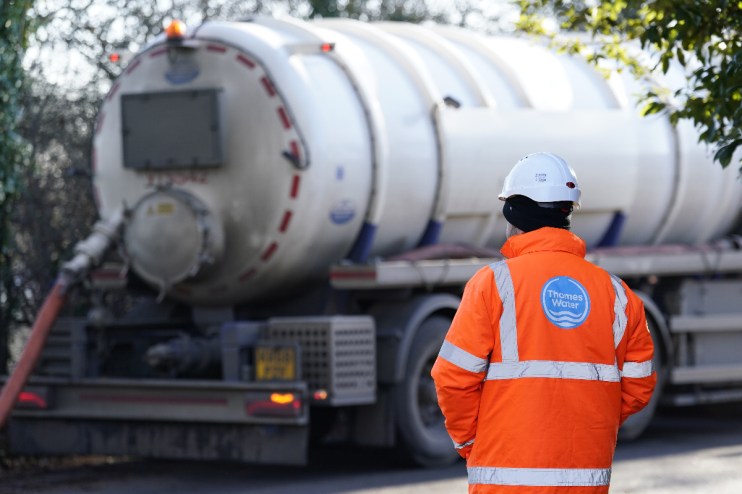Starmer: Nationalising debt-laden Thames Water ‘not consistent’ with our fiscal rules

Nationalising Thames Water would “not be consistent” with Labour’s fiscal rules, the Prime Minister’s spokesman has said.
The debt-laden water company has been the focus of public outcry over sewage spillage and warned regulator Ofwat it has £19bn in assets that may “pose a risk to public safety”.
But asked if Keir Starmer concurs with business secretary Jonathan Reynolds, who told a pre-election Bloomberg business debate that he “wouldn’t want to see a nationalisation” of Thames Water, the Prime Minister’s spokesman said: “The Prime Minister agrees.”
He added: “The cost of nationalisation to the taxpayer will not be consistent with our fiscal rules and we don’t think it’s the right course of action.
“Instead the government is focused on holding these companies to account, ensuring they’re investing and improving systems, rather than rewarding themselves.”
Speaking at the Bloomberg debate about Thames Water, Reynolds also said: “I think there should be a solution that falls short of that”.
He warned that “investment can involve losing as well as gaining money,” and said “people should not expect the state to bail out bad investments.”
Pressed on whether the government would have to step in as a last resort if a water company – such as Thames Water – was to go bust, the Prime Minister’s spokesman told reporters: “The government said in its manifesto, that we’ll put the failing water companies into special measures.
“That they’ll have no choice but to clean up their act and talked about giving regulators the power to block pay bonuses to executives who pollute our waterways and impose automatic and severe fines for ongoing wrongdoing.”
He added: “I can’t speak to specific water companies and their financial situation.”
In a video outlining his priorities as newly-appointed secretary of state for environment, food and rural affairs, Steve Reed said: “We are facing a crisis point. We have record levels of sewage in our rivers, lakes and seas.
“It will take years to reverse the damage that has been done, but the work of change has now begun.”
He said he has asked officials to “get to work on my five priorities” and that his number one focus was “cleaning up Britain’s rivers, lakes and seas”.
The Department for Environment, Food and Rural Affairs (Defra) has been asked whether Reed has met with or intends to meet with Thames Water executives.
A Thames Water spokesperson previously said: “Our water is among the highest quality drinking water in the world – and since 2010 more than 99.95 per cent of tests taken from customers’ taps met the standard required by UK legislation.”
